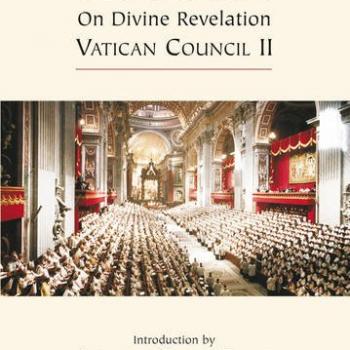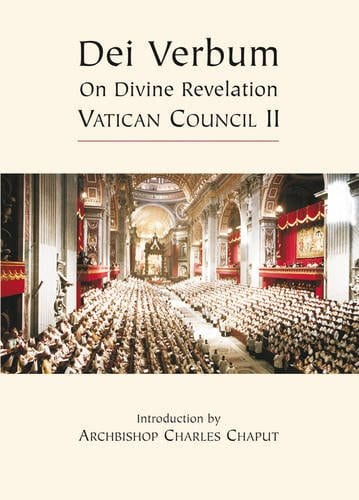
[SEE PART I]
TABLE OF CONTENTS
PART II
VI. Back to New Testament Tradition (and a Rabbit Trail of “Absolute Assurance”)
VII. Zapping Church History and Bashing the Church Fathers
VIII. Paul, Pagans, Prophets, Plato, Patristics, and Protestant Pastors
IX. Pastor Bayack’s Word vs. the Word of God, Calvin, & Luther (Gospel and Baptism)
X. Parting Shots From Pastor Bayack
XI. Postscript: Why Pastor Bayack Decided to End This Debate
* * * * *
VI. Back to New Testament Tradition (and a Rabbit Trail of “Absolute Assurance”)
*
However, Stephen Ray remains undaunted. Catholic Tradition must survive and to prop it up he appeals to passages like 2 Thessalonians 2:15 and 3:6 where Paul exhorts the Thessalonians to keep the traditions that he gave them. It may seem as if he has found the support he needs. But are these verses part of the structure of Catholic Tradition or are they part of the explosion that brings it down? Let us look at each. In 2 Thessalonians 2, Paul is writing to this church to let them know that the day of the Lord has not yet come and that Jesus Christ has not yet returned for His bride (verses 1-2).
*
He then goes on to explain in verses 3-12 what must first happen before the Lord returns which includes the frightful revelation of the “man of lawlessness . . . the son of destruction” (verse 3) and all of the chilling activity that comes with his advent. And lest believers think that somehow they will be in peril because of these future events, Paul gives them a marvelous word of comfort in verses 13-14, “But we should always give thanks to God for you, brethren beloved by the Lord, because God has chosen you from the beginning for salvation through sanctification by the Spirit and faith in the truth. And it was for this He called you through our gospel, that you may gain the glory of our Lord Jesus Christ” (italics added). Finally, in light of these word Paul gives his command in verse 15, “So then, brethren, stand firm and hold to the traditions which you were taught, whether by word of mouth or by letter from us.”
*
What is the point? Simply this—Paul calls them to follow these traditions in light of their calling, election, and absolute certainty of their salvation, a teaching which is directly contradicted by Roman Catholic doctrine! This assurance is reinforced by what he said to them in his first letter, “For God has not destined us for wrath, but for obtaining salvation through our Lord Jesus Christ” (1 Thessalonians 5:9). In other words, whatever these traditions were, they were in harmony with the doctrine of the believer’s assurance which Catholicism has long rejected. The traditions of this verse are in direct conflict with the Tradition of Rome.
*
First of all, this proves nothing at all with regard to the meaning of tradition because Pastor Bayack introduces a completely different subject matter. If he wishes to engage Catholics on the issues of soteriology, justification, assurance, etc., many of us Catholic apologists would be more than happy to oblige him, but to introduce that here is illogical and improper. Pastor Bayack’s burden is to show precisely what Paul means by his constant (not merely one-time) usage of tradition, and its being received and delivered.
*
I have shown, by much exegetical and linguistic biblical evidence, presented above (and directly below), that he and other New Testament writers mean by this the gospel, the word of God, the faith, etc. They are all the same entity. This can be clearly shown by a dozen of St. Paul’s statements to the Thessalonians alone:
1 Thessalonians 1:5 for our gospel came to you not only in word, but also in power . . .
1 Thessalonians 1:6 . . . you received the word in much affliction . . .
1 Thessalonians 2:2 . . . we had courage in our God to declare to you the gospel of God . . .
1 Thessalonians 2:8 . . . ready to share with you not only the gospel of God but also our own selves . . .
1 Thessalonians 2:9 . . . we preached to you the gospel of God.
1 Thessalonians 2:13 . . . you received the word of God, which you heard from us, . . .
1 Thessalonians 4:1 . . . as you learned from us how you ought to live and to please God . . .
2 Thessalonians 1:8 . . . vengeance upon . . . those who do not obey the gospel of our Lord Jesus.
2 Thessalonians 2:14 To this he called you through our gospel . . .
2 Thessalonians 2:15 . . . hold to the traditions . . . taught . . . by word of mouth or by letter.
2 Thessalonians 3:1 . . . pray for us, that the word of the Lord may speed on and triumph . . .
2 Thessalonians 3:6 . . . the tradition that you received from us.
Paul uses the words and phrases gospel, tradition, and word of the Lord interchangeably even in the space of just five verses (2 Thessalonians 2:14-3:1)!!! So it is quite biblical and Pauline to say, “we must proclaim the saving tradition,” since “tradition” and “gospel” and “word of God” are synonymous in Paul’s mind and that of the Apostles. Therefore, this broad application can’t be reduced to a single usage and limited in its meaning, as the good pastor foolishly tries to do here.
*
I’m sure Pastor Bayack would agree with me that a fundamental (characteristically Protestant) rule of hermeneutics, is to compare Scripture with Scripture. I have done that, where tradition (paradosis) is concerned, and quite comprehensively. Pastor Bayack has not. But if he wishes to do so now, I’d be absolutely delighted to interact with his response to my exegesis.
*
Secondly, the argument he gives concerning “absolute certainty of salvation” is clearly logically fallacious (I shall treat it in passing, even though we stray from our subject). In 2 Thessalonians 2:13, Paul writes that God chose you from the beginning to be saved . . . Well, sure: God chooses and elects who is saved. And it is “present” to God, not future, as He is outside of time. Welcome to Christian Theology 0101. This is Catholic doctrine, and we believe in predestination (of the saved, but not the damned) as well.
*
It is a binding dogma of the Church (for proof of this assertion, see related papers on my
Salvation & Justification page). But Paul here does not teach that the
believer himself is “absolutely” assured of his own salvation. The passage teaches nothing of the sort (only eisegesis forces it to); it merely states that
God chooses his elect. God’s foreknowledge and omniscience are quite distinct from our fallible and sin-infected knowledge, as I’m sure Pastor Bayack would readily grant.
*
Thirdly, does Pastor Bayack wish to argue that every person in the Thessalonian church was amongst the elect, so that we should take this verse absolutely literally? That would hardly be a tenable position. This is a corporate address, and cannot be applied literally to each and every person in that church. Communities are always a mixed bag; we know this from Paul’s letters to the Galatians and Corinthians, and Jesus’ reprimands of the “seven churches” (note that He still regards them as “churches” despite most being pitiable examples of Christianity at best) in the book of Revelation (and any Christian’s own experience). If there are a few Christians to be found even in the lowly Catholic Church, according to our friend, then certainly there were a few reprobates who hung around the Thessalonian church . . .
*
Fourthly, the Apostle Paul himself possesses no such “absolute assurance” at all. Paul was not Luther, the one who was neurotically obsessed with figuring out whether God loved him or not. Paul is rather confident of God’s love, yet he never speaks of having already attained the prize of salvation:
1 Corinthians 9:27 but I pommel my body and subdue it, lest after preaching to others I myself should be disqualified.
*
1 Corinthians 10:12 Therefore let any one who thinks that he stands take heed lest he fall.
*
Galatians 5:1, 4 . . . stand fast therefore, and do not submit again to a yoke of slavery . . . You are severed from Christ, you who would be justified by the law; you have fallen away from grace.
*
Philippians 3:11-14 that if possible I may attain the resurrection from the dead. Not that I have already obtained this or am already perfect; but I press on to make it my own, because Christ Jesus has made me his own. Brethren, I do not consider that I have made it my own . . . I press on toward the goal for the prize of the upward call of God in Christ Jesus.
*
1 Timothy 4:1 Now the Spirit expressly says that in later times some will depart from the faith by giving heed to deceitful spirits and doctrines of demons.
*
1 Timothy 5:15 For some have already strayed after Satan.
*
[See also 1 Samuel 11:6, 18:11-12, Ezekiel 18:24, 33:12-13, 18, Galatians 4:9, Colossians 1:23, Hebrews 3:12-14, 6:4-6, 11-12, 10:23, 26, 29, 36, 39, 12:15, 2 Peter 2:15, 20-21, Revelation 2:4-5]
Catholics believe that every person can have a moral assurance of salvation, provided we examine ourselves honestly and thoroughly to determine if we are in right relationship to God and not engaged in gravely sinful activities. We assert that this is the biblical view, seeing that it is often stated that “fornicators, adulterers, idolaters, liars, thieves,” etc. will not inherit the kingdom (salvation).
*
Fifth, even John Calvin does not hold that someone other than God (I say, even the Apostle Paul, especially since he wasn’t even absolutely sure of his own election) could know whether another person was amongst the elect (though indeed he taught that one could be personally sure of their own election):
[W]e are not bidden to distinguish between reprobate and elect – that is for God alone, not for us, to do . . . (Institutes of the Christian Religion [McNeill / Battles edition, Philadelphia: Westminster Press, 1960], IV. 1. 3.)
*
We must thus consider both God’s secret election and his inner call. For he alone “knows who are his” [II Tim. 2:19] . . . except that they bear his insignia by which they may be distinguished from the reprobate. But because a small and contemptible number are hidden in a huge multitude and a few grains of wheat are covered by a pile of chaff, we must leave to God alone the knowledge of his church, whose foundation is his secret election. It is not sufficient, indeed, for us to comprehend in mind and thought the multitude of the elect, unless we consider the unity of the church as that into which we are convinced we have been truly engrafted. (Ibid., IV.1. 2.)
*
Of those who openly wear his badge, his eyes alone see the ones who are unfeignedly holy and will persevere to the very end [Matt. 24:13] – the ultimate point of salvation. (Ibid., IV.1. 8.)
Sixth, right in 2 Thessalonians 2:15, in the immediate context of Pastor Bayack’s citation, Paul speaks of the traditions being passed by word of mouth; oral tradition, which is anathema to the Protestant position. So our friend will say that this was to cease when the Bible was completed. That’s a nice opinion, but that is all it is: Pastor Bayack’s own arbitrary opinion. It is nowhere stated in the Bible; therefore it must be dismissed as an extrabiblical notion; therefore contrary to sola Scriptura and certainly not an indisputable tenet of belief (even granting Protestant premises). So, indeed, the tradition referred to here is no Protestant tradition, as it includes authoritative oral proclamation, which is never regarded as temporary by the Apostles.
*
Seventh, if we wish to play this game of defining tradition by immediate context, rather than repeated usage, then Pastor Bayack’s argument will eventually backfire, simply by finding a context which goes against (much) Protestant teaching. For instance:
1 Corinthians 11:2 I commend you because you remember me in everything and maintain the traditions even as I have delivered them to you.
Following our friend’s method, let us see what the very next verse states (and how it will “define” this tradition):
1 Corinthians 11:3 But I want you to understand that the head of every man is Christ, the head of a woman is her husband . . .
Now, any evangelical Protestant who takes any sociological note at all of what is going on in his own theological circles knows full well that feminism and unisexism is launching an all-out assault and infiltrating evangelical circles left and right. And no biblical doctrine is more despised by a certain “enlightened” feminist outlook as outdated, “patriarchal,” and oppressive, than the headship of the husband. The point is that, once again (as always), Protestantism (even at official denominational levels) is caving into the zeitgeist and fads of our time.
*
Apart from the ongoing ecclesiological and doctrinal chaos that has always typified Protestantism, there is certainly no present-day agreement about the meaning of this teaching of Paul, even in supposedly “orthodox” conservative evangelical circles. Yet (again, using Pastor Bayack’s own methodology against us), this is part and parcel of New Testament tradition! Paraphrasing our friend, and turning the tables:
Are these verses part of the structure of Protestant tradition [substitute the more accepted word “doctrine” for the faint of heart] or are they part of the explosion that brings it down?
If the example of 2 Thessalonians 2:15 and its context “brings down” Catholic Tradition, then by the same token, 1 Corinthians 11:2-3 must bring down all the liberalized, compromised, secularized, “feminized” churches which are present by the thousands even in the evangelical Protestant milieu. There is no denying the problem. Francis Schaeffer (whom I greatly admire; and whom Steve Ray once studied with, at L’Abri in Switzerland) was “prophetically” writing about it for several years before his death, which was in 1984.
*
The same argument can be made concerning acceptance of divorce, abortion, premarital sex, female clergy, even homosexuality and euthanasia, in many evangelical circles today (not to mention contraception, which Luther and Calvin regarded as murder, and which all Christians opposed as gravely immoral before 1930). It is obvious that official, unchanging Catholic teaching on these and many other ethical, gender, sexual, and life issues, is far more in line with New Testament teaching than any particular brand of Protestantism is.
*
Thus, I submit that it is Pastor Bayack’s argument (and by extension, his theological/ecclesiological system) which is “brought down” by an “explosion” of New Testament (and even internal Protestant) logic. Not that incoherence or moral and doctrinal relativism in Protestant thought and theology is a rare thing . . . But let’s go on and see what else he attempts to come up with in his ongoing mission to “explode” the Catholic acceptance of the tradition of the New Testament and the Apostles.
*
Catholicism fares no better with a proper understanding of 2 Thessalonians 3:6. In that verse, Paul states, “Now we command you, brethren, in the name of our Lord Jesus Christ, that you keep aloof from every brother who leads an unruly life and not according to the tradition that you received from us.” He then goes on to explain beginning in verse 7 how he, Silas, and Timothy all led disciplined lives and worked for their own bread. The tradition that Paul speaks of here deals with the work ethic that “if anyone will not work, neither let him eat” (verse 10), and has nothing to do with things like the Perpetual Virginity of Mary, the bodily assumption of Mary into heaven, etc.
*
The Christian, apostolic, biblical tradition obviously includes ethical and behavioral elements. Does that mean, therefore, that it excludes various doctrinal elements (setting aside for the moment what exactly they might be)? This is an astonishingly weak and absurd and utterly irrelevant argument, especially coming from a trained minister of the gospel and student of the Bible. We obviously determine the complete extent of New Testament tradition by studying it as a whole. What Paul and Jesus teach in the New Testament books constitutes the tradition and gospel and word of the Lord. It is comprehensive; hence Jesus commands His followers, shortly before His Ascension, to baptize and make disciples, “teaching them to observe all that I have commanded you . . . ” (Matthew 28:20).
*
But beyond that, we also look to the early Church to determine what the gospel and tradition and “deposit of faith” was. The Apostles and other early Christians went out to preach to the world, and they didn’t simply stand and read Scripture to the crowds (though they certainly used it). What the early Church and early Fathers believed gives us a clue as to the whole extent of this New Testament tradition. They didn’t forget everything (at that early stage, they even had firsthand memory of what Jesus or His disciples had told them) as soon as the Bible was complete, c. 100. And memory was much better in that culture. It was an oral culture, where memory was cultivated from an early age. This has been documented time and again.
*
And of course we find virtually all the Catholic distinctives present from the beginning (episcopal church government – bishops – , a literal Eucharist, baptismal regeneration, a priesthood, infused — not imputed — justification, apostolic succession, adherence to Tradition as well as Scripture, penance, prayers for the dead, the papacy, the communion of saints, Mary as the ever-virgin, Mother of God, and New Eve, a visible Church with councils {Jerusalem Council of Acts 15}, etc.). Doctrines develop, but they are present in kernel or fuller form from the beginning, whereas dozens of Protestant distinctives are nowhere to be found until more than 1400 years later (which scarcely suggests that they were apostolic).
*
Three Protestant Bible Dictionaries agree with my basic contentions with regard to the nature of biblical tradition:
*
Apostolic teaching – which included facts about Christ, their theological importance, and their ethical implications for Christian living – was described as tradition (1 Cor 11:2; 2 Thess 2:15). It had divine sanction (1 Cor 11:23; Gal 1:11-16) . . . Jesus rejected tradition, but only in the sense of human accretion lacking divine sanction (Mk 7:3-9). (J. D. Douglas, editor, The New International Dictionary of the Christian Church, Grand Rapids, Michigan: Zondervan, revised edition, 1978, pp. 981-982)
*
Appeals to authoritative Church tradition are found already in the earliest New Testament writings, the letters of Paul. Occasionally explicit reference is made to some material as traditional, including a particular set of ethical instructions (2 Thess 3:6), a set eucharistic formula (1 Cor 11:23-6), and a standardized recital of the death, burial, resurrection, and postresurrection appearances of Christ (1 Cor 15:3-7). Also recorded are more generalized references to Church traditions (1 Cor 11:2; Phil 4:9; 2 Thess 2:15; cf. Rom 6:17; Gal 1:9). . .. . The New Testament writings were first valued not as inspired Scripture but as deposits of apostolic tradition in fixed written form, to be interpreted authoritatively by the bishops and according to the rule of faith . . .
*
Jesus did not totally reject the oral tradition . . . His own interpretation of the Torah in the Sermon on the Mount employs the scribal principle of ‘building a fence about the Torah’ – not simply by restricting external behavior more than the written law, but by pointing out that sinful interior urgings in themselves violate what the Torah seeks to control (Matt 5:21-2,27-8, 38-9). (Allen C. Myers, editor, Eerdmans Bible Dictionary, Grand Rapids, Michigan: Eerdmans, 1987; [English revision of Bijbelse Encyclopedie, edited by W.H. Gispen, Kampen, Netherlands: J.H. Kok, revised edition, 1975], translated by Raymond C. Togtman & Ralph W. Vunderink, pp. 1014-1015)
*
Christian tradition in the New Testament therefore consists of the following three elements: a) the facts of Christ (1 Cor 11:23; 15:3; Lk 1:2 . . . ); b) the theological interpretation of those facts; see, e.g., the whole argument of 1 Cor 15; c) the manner of life which flows from them (1 Cor 16:2; 2 Thess 2:15; 3:6-7). In Jude 3 the ‘faith . . . once for all delivered’ (RSV) covers all three elements (cf. Rom 6:17). Christ was made known by the apostolic testimony to Him; the apostles therefore claimed that their tradition was to be received as authoritative (1 Cor 15:2; 2 Thess 2:15; 3:6). . . This combination of eyewitness testimony and Spirit-guided witness produced a ‘tradition’ that was a true and valid complement to the Old Testament Scriptures. So 1 Tim 5:18 and 2 Pet 3:16 place apostolic tradition alongside Scripture and describe it as such. (J. D. Douglas, editor, The New Bible Dictionary, Grand Rapids, Michigan: Eerdmans, 1962, p. 1291)
The context of these verses deals a crippling blow—not a support—to official Catholic Tradition. However, Stephen Ray conveniently ignores the context of these verses as he must.
*
The above arguments show how ludicrous these contentions are, I think (especially the gratuitous “must”). If anyone is “ignoring context” (and proper exegesis), Pastor Bayack is. I’ve given at least ten times more biblical support for our view than he has given for his (if he wishes to counter-reply, then great). Even Protestant biblical scholars and commentators would not accept such a simplistic understanding of New Testament tradition, as just seen.
*
They are far more in accord with my viewpoint than Pastor Bayack’s (i.e., concerning what tradition is, not, of course, with regard to its particulars, or our claims that it contains what are now “Catholic disctinctives”). But here we are discussing tradition generally, or generically. What it includes in all its particulars is another entire discussion. That requires biblical examination of each and every doctrine, and I do just that on my website, which is called Biblical Evidence for Catholicism.
VII. Zapping Church History and Bashing the Church Fathers
*
Just about anything can be proven when Scripture is taken out of context and the old saying, “a text without a context is a pretext” applies very well to him. In fact, he is quite adept at ignoring the context of Scripture if an allegorical interpretation supports his point. When I challenged him about using extensive allegory, especially in reference to the Old Testament, he stated, “I have often used Old Testament passages in the same ‘patristic’ manner as the earliest Church Fathers” (11) and “If you mean by allegory that I interpret them patristically, I plead guilty” (11).
*
I agree totally about the supreme importance of context. But I would contend that Pastor Bayack, too, is guilty of neglecting this (whether or not Steve Ray is). I’ve now spent many hours refuting his false claims, utilizing tons of Scripture in the process (and I have enjoyed it immensely, because I always love studying Holy Scripture). Let the reader judge who is being more “biblical” in their analyses and exegesis. General hermeneutical principles and the place of allegory are beyond my purview here. I refer Pastor Bayack and readers to my paper:
Dialogue: Clearness (Perspicuity) of Scripture and the Formal Sufficiency of Scripture (with Carmen Bryant). That dialogue deals with hermeneutical issues (including the history of same).
*
In this paper, one learns, for example, that the early heretics tended to believe in a hyper-literal interpretation of Scripture, to the exclusion of allegory, whereas the orthodox Catholic Chalcedonian trinitarians accepted allegory (though not denying a primacy of the literal interpretation). So this is yet another instance of Protestantism being analogous to the heresies in their theological method (just as in the case of sola Scriptura and in the tendency to reject apostolic succession and the crucial, indispensable function of history in Christianity).
*
The Gnostics, for example, rejected the Incarnation (the Apostle John was already refuting them in John 1), so it was entirely predictable and logically consistent that they would reject Church history as well, since the Church is the embodiment of Christ and the continuation of His mission in time and space. Christianity is not a disembodied, ethereal religion. It takes in the physical world as well. In the Christian view, the body is good, sensory pleasure is good, and hence the Church and history are good, and sacraments bring together spiritual graces and physical means, just as God took on flesh and became man, thus raising human flesh and mankind to previously unknown sublime levels. This is the incarnational principle.
*
Statements like this reveal another crutch that Stephen Ray must lean upon to support Catholic Tradition—the Church Fathers.
*
Indeed, as any legitimate Christian system should, because Christianity is intrinsically historical. Many Protestants seem to take this dim view of Church history and the Fathers. But Christianity is historical at its very core, as Judaism before it was. It was confirmed by eyewitness testimony of miracles, and Jesus’ Resurrection; very much historical criteria of proof, credibility, and plausibility.
*
What Pastor Bayack calls a “crutch” is absolutely essential to self-consistent Christianity, even in terms of getting the Bible itself into the good pastor’s hands. Without the Catholic Church and Tradition and Fathers we would not have the Bible we have today. Canonization (just like the authorship of the Bible) was a very human process. But the history of the Church is a continuation of Jesus’ Incarnation. God took on flesh and became man. After our Lord’s Ascension, the Body of Christ, the Church, continued the physical presence of Jesus on the earth, in a sense. God works with men; men are physical; the Church they belong to is physical in many ways (this gets into sacramentalism as well: another huge discussion, but see the many biblical proofs in my paper:
Heartfelt Sacramentalism (Not Mere Charms).
*
In my review I stated that he quotes them as though they were infallible and that nowhere in his book does he consider that they may contract Scripture to which the humble Mr. Ray responds, “With all due respect the above comment is nothing but stupid. Come on Mr. Bayack, of course some of the Fathers contradict Scripture some of the time” (16).
*
I assumed that you believed as much, Mr. Ray, but that is not what I said, if indeed you truly read my review. I said that you treat them as though they are infallible, not that you believe them to be infallible. He continues, “Do I have to attach a disclaimer for each citation?” (11). No. But where do you give any disclaimer, even one, that the Church Fathers were prone to error? Judging by the way you so authoritatively referenced them, how is a simple mind like mine to conclude otherwise?
*
It is common knowledge (with the slightest study on the subject) that in Catholic, and Orthodox theology, the Fathers are not regarded as individually infallible. Even popes are infallible only when they authoritatively proclaim, not always. So I must agree that even the question and the distinction without a difference drawn betrays yet another lamentable instance of Protestant ignorance, which is never surprising to those of us who deal in Protestant misconceptions all the time, in the course of defending the Catholic Church. And, admittedly, it can get irritating and frustrating to us, so that we may not always respond as charitably as we should.
*
I’m not sure if Steve makes a precise statement in either of his two books of exactly how patristic authority is regarded in the Catholic Church. I couldn’t locate one myself. If he doesn’t, I think it was an unfortunate omission, given the multitude of patristic citations in each book. He has, however, written an article which I have had on my
Church Fathers page for some time (and it is available on his website):
Unanimous Consent of the Fathers. In this paper (included in the
Catholic Dictionary of Apologetics and Evangelism — Ignatius Press) Steve states (emphasis added):
The Unanimous Consent of the Fathers (unanimem consensum Patrum) refers to the morally unanimous teaching of the Church Fathers on certain doctrines as revealed by God and interpretations of Scripture as received by the universal Church. The individual Fathers are not personally infallible, and a discrepancy by a few patristic witnesses does not harm the collective patristic testimony. The word “unanimous” comes from two Latin words: únus, one + animus, mind. “Consent” in Latin means agreement, accord, and harmony; being of the same mind or opinion. Where the Fathers speak in harmony, with one mind overall – not necessarily each and every one agreeing on every detail but by consensus and general agreement – we have “unanimous consent.” The teachings of the Fathers provide us with an authentic witness to the apostolic tradition. . . .
*
A fine definition of Unanimous Consent, based on the Church Councils, is provided in the Maryknoll Catholic Dictionary,
*
When the Fathers of the Church are morally unanimous in their teaching that a certain doctrine is a part of revelation, or is received by the universal Church, or that the opposite of a doctrine is heretical, then their united testimony is a certain criterion of divine tradition. As the Fathers are not personally infallible, the counter-testimony of one or two would not be destructive of the value of the collective testimony; so a moral unanimity only is required. (Wilkes-Barre, Penn.: Dimension Books, 1965, pg. 153)
VIII. Paul, Pagans, Prophets, Plato, Patristics, and Protestant Pastors
*
Anyone who yokes his interpretation of Scripture together with the Church Fathers is often building on a perforated foundation—its appearance belies its strength. If Stephen Ray truly believes the Church Fathers to be fallible, then he should examine them as the Bereans did Paul in Acts 17:11 (cf. 1 Thessalonians 5:21 also). If the great apostle’s teaching was subject to examination, then that of lesser men should be as well. What most people fail to realize about the Church Fathers is that many of them often embraced a syncretistic approach seeking to harmonize Greek
philosophy and Biblical truth.
*
“It was argued by some Christian apologists that the best doctrines of philosophy were due to the inworking in the world of the same Divine Word who had become incarnate in Jesus Christ. ‘The teachings of Plato,’ says Justin Martyr, ‘are not alien to those of Christ, though not in all respects similar. . . . For all the writers (of antiquity) were able to have a dim vision of realities by means of the indwelling seed of the implanted Word.” (Edwin Hatch, The Influences of Greek Ideas and Usages Upon the Christian Church [London: Williams and Norgate, 1895; repr., Peabody, Ma.: Hendrickson, 1995], 126-27, parenthesis in original)
*
The intent was to make Christianity appeal to the Greek mind. However, this approach is fatally flawed. Worldly wisdom is “earthly, natural, [and] demonic” as we read in James 3:15 and is directly at odds with divine wisdom as we read in 1 Corinthians 2. The carnal mind will never believe due to intellectual reasoning alone. He will not accept the things of God until the Lord opens his eyes and draws him to believe (cf. John 6:44). Thus the oil-and-water mix pursued by many of the Fathers often yielded hazardous interpretations of the Word of God. Poison plus water
equals poison.
*
This is another huge subject, and Pastor Bayack is now revealing the common, most regrettable and unbiblical evangelical Protestant distrust of the mind and reason, and of selective truths which may have been (and often were) present in the nobler pagan minds such as that of Socrates, Aristotle and Plato. He wishes to contend that this “syncretistic” attitude is foreign to Christianity and the New Testament. It is not. Elsewhere I have written:
We observe the Apostle Paul “incorporating paganism” in a sense when he dialogues with the Greek intellectuals and philosophers on Mars Hill in Athens (Acts 17). He compliments their religiosity (17:22), and comments on a pagan “altar with the inscription, ‘To an unknown god.’ ” (17:23). He then goes on to preach that this “unknown god” is indeed Yahweh, the God of the OT and of the Jews (17:23-24). Then he expands upon the understanding of the true God as opposed to “shrines made by human hands” (17:24-25), and God as Sovereign and Sustaining Creator (17:26-28). In doing so he cites two pagan poets and/or philosophers: Epimenides of Crete (whom he also cites in Titus 1:12) and Aratus of Cilicia (17:28) and expands upon their understanding as well (17:29).
*
This is basically the same thing that the Church does with regard to pagan feasts and customs: it takes whatever is not sinful and Christianizes it. To me, this is great practical wisdom and a profound understanding of human nature. The frequent Protestant assumption that this is a wholesale adoption of paganism per se, and an evil and diabolical mixture of idolatry and paganism with Christianity is way off the mark . . . After all, the Apostle Paul is clearly guilty of mixing paganism and Christianity also. :-) Remember, it was Paul who stated:
*
To the weak I became weak, so that I might win the weak. I have become all things to all people, that I might by all means save some. (1 Cor 9:22; NRSV; read the context of 9:19-21)
*
In my opinion, the Church’s practice concerning Easter, Christmas, All Souls Day, All Saints Day, etc. is a straightforward application of Paul’s own “evangelistic strategy,” if you will. That puts all this in quite a different light, when it is backed up explicitly from Scripture. The early Church merely followed Paul’s lead. Furthermore, skeptics of Christianity trace the Trinity itself to Babylonian three-headed gods and suchlike, and the Resurrection of Christ to Mithraism or other pagan religious beliefs, but that doesn’t stop Protestants from believing in the Triune God or the Resurrection. So this whole critique eventually backfires on those who give it. (
Is Catholicism Half-Pagan?)
Let us continue. Stephen Ray is not finished in his support of Catholic Tradition. In his section “Questions for ‘Bible Christians’” on page 26, he draws upon Jude 9, 14-15 as support for oral Tradition being authoritative and even treating it as God’s Word. Is it?
*
Jude 9 discusses the dispute between the archangel Michael and the devil over the body of Moses. While this event is not found in the Old Testament, it is found in the apocryphal book The Assumption of Moses. Verses 14-15 discuss a prophecy of Enoch which is also not found in the Old Testament but is found in the apocryphal Book of Enoch. Do these references support oral Tradition as being authoritative or that the Catholic Apocrypha is also part of the inspired Word of God?
*
No, they do not. God at times allows His writers to quote truths from non-inspired sources to make a point. For example, Paul quotes ancient poets three times in inspired writings. In Acts 17:28 he quotes Aratus’ poem Phaenomena when he says, “Even some of your own poets have said, ‘For we also are His offspring.’” Does this mean that Phaenomena is inspired or that the oral tradition which transmitted it is the Word of God?
*
Is the same true of Menander and Epimenides because he quotes them in 1 Corinthians 15:33 and Titus 1:12 respectively? Man in his pursuit of knowledge occasionally intersects God’s truth. After all, even a stopped clock is right twice a day.
*
But didn’t Pastor Bayack just say, above: “Worldly wisdom is ‘earthly, natural, [and] demonic’ as we read in James 3:15 and is directly at odds with divine wisdom as we read in 1 Corinthians 2.” ? Is this not contradictory to his present (true) point that pagans and other non-Christians may possess snippets of truth, even “God’s truth”? Perhaps he can return and inform us as to which of his two contradictory opinions he prefers. No one is saying that to merely quote some source makes it inspired per se, but it would seem to imply a considerable authority and trustworthiness of the source. Catholic apologist David Palm elaborates:
Jude relates an altercation between Michael and Satan:
*
When the archangel Michael, contending with the devil, disputed about the body of Moses, he did not presume to pronounce a reviling judgment upon him, but said, ‘The Lord rebuke you.’ (Jude 9).
*
As H. Willmering says in A Catholic Commentary on Holy Scripture,
*
This incident is not mentioned in Scripture, but may have been a Jewish oral tradition, which is well known to the readers of this epistle.
*
Some versions of the story circulating in ancient Judaism depict Satan trying to intervene as Michael buries the body. Several of the Church Fathers know of another version in which Moses’ body is assumed into heaven after his death. Jude draws on this oral Tradition to highlight the incredible arrogance of the heretics he opposes; even Michael the archangel did not take it on himself to rebuke Satan, and yet these men have no scruples in reviling celestial beings.This text provides another example of a New Testament author tapping oral Tradition to expound Christian doctrine—in this case an issue of behavior. In addition, this text relates well to a Catholic dogma that troubles many non-Catholics—the bodily Assumption of Mary. There is no explicit biblical evidence for Mary’s Assumption (although see Rev. 12:1-6), but Jude not only provides us with a third biblical example of the bodily assumption of one of God’s special servants (see also Gen. 5:24, 2 Kgs. 2:11), he shows that oral Tradition can be the ground on which belief in such a dogma may be based. (
“Oral Tradition in the New Testament”)
In my extensive and very enjoyable dialogue with a Baptist (who henceforth was never to be heard from again):
Sola Scriptura, the Old Testament, and Ancient Jewish Practice, I drew the following conclusions from my numerous analogical and biblical arguments, which have some relevance to our present discussion. My friend was contending that the Old Testament Jews believed in
sola Scriptura (i.e., their views on formal principles of authority were more consistent with Protestantism). I denied this (with many arguments), and maintained that they were much more similar to the Catholic “three-legged stool” of Scripture, Church, and Tradition.
*
The same is true of events and quotations that God uses from apocryphal sources even if these sources were not inspired. (By the way, if Catholicism appeals to these verses in Jude as support for apocryphal inspiration, then why is neither The Book of Enoch nor The Assumption of Moses found in the Catholic Apocrypha?
*
Because it’s an argument from analogy and methodology, not exact equivalence. The important and relevant point here is that there are many thinly-veiled references to the so-called “apocryphal” books which are in the Catholic OT canon in the New Testament, yet Protestants never think that suggests canonicity of those books; all the while they state over and over that when any of the 39 Old Testament books accepted by Protestants are cited, that this suggests their canonicity. Here are three examples of clear (though not technically “direct”) references to the “Apocrypha” in the New Testament:
Revelation 1:4 Grace to you . . . from the seven spirits who are before his throne. (cf. 3:1; 4:5; 5:6)
*
Revelation 8:3-4 And another angel came and stood at the altar with a golden censer; and he was given much incense to mingle with the prayers of all the saints upon the golden altar before the throne; and the smoke of the incense rose with the prayers of the saints from the hand of the angel before God. (cf. 5:8)
*
Tobit 12:15 I am Raphael, one of the seven holy angels who present the prayers of the saints and enter into the presence of the glory of the Holy One.
St. Paul, in 1 Corinthians 15:29, seems to have 2 Maccabees 12:44 in mind. This saying of Paul is one of the most difficult in the New Testament for Protestants to interpret, given their theology:
1 Corinthians 15:29 Otherwise, what do people mean by being baptized on behalf of the dead? If the dead are not raised at all, why are people baptized on their behalf?
*
2 Maccabees 12:44 For if he were not expecting that those who had fallen would rise again, it would have been superfluous and foolish to pray for the dead.
This passage of St. Paul shows that it was the custom of the early Church to watch, pray and fast for the souls of the deceased. In Scripture, to be baptized is often a metaphor for affliction or (in the Catholic understanding) penance (for example, Matthew 3:11, Mark 10:38-39, Luke 3:16, 12:50). Since those in heaven have no need of prayer, and those in hell can’t benefit from it, these practices, sanctioned by St. Paul, must be directed towards those in purgatory. Otherwise, prayers and penances for the dead make no sense, and this seems to be largely what Paul is trying to bring out. The “penance interpretation” is contextually supported by the next three verses, where St. Paul speaks of Why am I in peril every hour? . . . I die every day, and so forth.
*
And Hebrews 11:35 mirrors the thought of 2 Maccabees 7:29:
Hebrews 11:35 Women received their dead by resurrection. Some were tortured, refusing to accept release, that they might rise again to a better life.
*
2 Maccabees 7:29 Do not fear this butcher, but prove worthy of your brothers. Accept death, so that in God’s mercy I may get you back again with your brothers. [a mother speaking to her son: see 7:25-26]
How is it that these non-inspired books could support Apocryphal inspiration?)
*
The Catholic argument here is not so much to support the Deuterocanonical books, as it is to support the normative nature of an authoritative, non-canonical oral Tradition. We say that the “Apocrypha” is Scripture because it was declared so at the Councils of Hippo and Carthage (393, 397), along with the other books which Protestants accept. Our friends have the inconsistent principle, once again. The seven books they dispute were arbitrarily ditched in the 16th century because they contained clear proofs of doctrines (such as purgatory) which Luther rejected. But who gave Luther the authority to determine by himself what constituted Sacred Scripture? Who anointed him as God’s Holy Prophet or some sort of “pseudo-Moses”?
*
Furthermore, in verse 14 Jude writes “Enoch . . . prophesied”. By contrast, notice how Matthew referred to the prophecy of Micah 5:2 in Matthew 2:5, “For so it has been written by the prophet.” Enoch’s quote is inspired while Micah’s writings are inspired. Never is it said, “It is written” concerning The Book of Enoch nor any other apocryphal writing. Jude references Enoch’s prophecy, not the book. Neither the document nor its word-of-mouth transmission have the same authority as Scripture.
*
See the above arguments and links. This paper is long enough. One can’t conquer the world in a single paper. Now we are engaged in extensive arguments about the biblical canon . . .
*
And neither does Roman Catholic Tradition.
*
I agree. The Catholic Church is the Guardian and Custodian of the Bible and Tradition. It is not equal to it, nor does it have any right or power to change God’s Tradition, the Gospel, or the Bible. Protestants, on the other hand, thought nothing of overturning doctrines which had been continuously believed and passed-down for 1500 years. This is indeed the usurpation of Scripture and harmonious Apostolic Tradition, so I suggest that Pastor Bayack examine his own Protestant house (all the hundreds of rooms in it).
IX. Pastor Bayack’s Word vs. the Word of God, Calvin, & Luther (Gospel and Baptism)
*
ii. The Word of God
*
Stephen Ray’s ability to handle the Word of God has also been weighed in the balance and found wanting. He is as obligated to follow Rome’s handling of Scripture as he is her Tradition, even if it means throwing himself into a vortex of error.
*
But what does the Protestant do in this regard? Well, Joe Q. Protestant is an atomistic individual who (when all’s said and done) follows his own theological inclination wherever it may lead. There are plenty of “vortex’s of error” in Protestant ranks. There must be, because the mere existence of contradiction and competing theologies and Christianities logically requires that someone is in error. At least individual Catholics such as Steve Ray and myself consciously acknowledge and submit to an entity and Tradition far greater than one frail and fallible human being. At least Catholics acknowledge that the Holy Spirit has been talking to a lot of holy men and women for 2000 years (not just “me”), and that they may have learned a few things, a little bit in all that time that we can spiritually benefit from.
*
G. K. Chesterton stated that “tradition is the democracy of the dead.” Protestantism, on the other hand, is more like the “dictatorship of the individual.” The wheel (theoretically, following the principles of private judgment and sola Scriptura) could be re-invented with every Protestant. Every Protestant is his own pope, and assumes more authority for himself than any pope ever dreamt of in his wildest dreams.
*
Not surprisingly, Mr. Ray views this as a badge of honor. “Ignorant people like to claim Catholicism contradicts the Bible, but it was actually the great fidelity of the Catholic Church to Scripture and the teaching of Jesus and the Apostles that eventually caused me to convert to the Catholic Church” (7). “One of the nice things about being a Catholic is that there are no longer any verses that don’t fit or make sense, such as 1 Peter 3:31, John 20:23, Colossians 1:24, John 3:5, etc.” (11). He holds to the same line that I was taught in fourth-grade Parochial school, namely, that
since Roman Catholicism is supposedly an infallible Church, she possesses an infallible interpretation of Scripture.
*
If this is so, then where is the official, infallible set of commentaries whereby I might look up the meaning of any and every verse? Surely a simple mind like mine would benefit from that. Yet none exists. Wouldn’t such a set be the invincible fortress which no heresy could assault? Why does Rome not give us the authoritative, once-for-all, verse-by-verse exposition of the Word of God which would forever silence her critics?
*
Because the Church is concerned with guarding the apostolic deposit in its entirety, not requiring its members to believe a certain way about particular Bible verses. The Church declares infallible doctrines, not infallible interpretations of individual verses. Another case of the Catholic not being able to win, where its more vehement critics are concerned . . . We observe Pastor Bayack’s impassioned complaint and mocking tone above. Yet we can be sure that if there did exist a Catholic document giving a binding, dogmatic opinion on every verse in the entire Bible, that this would be considered the most tyrannical, oppressive, dictatorial phenomenon ever seen in world history.
*
We should not hope for such a commentary anytime soon. And if Stephen Ray’s capability with the Bible reflects that of his Church, it is understandable why such a commentary will never exist. For example, he states, “Paul taught the churches many things . . . [including] how to ordain priests” (10). I am want to find such a passage! If Stephen Ray had any proficiency in Greek, he would know that the word for “priest” is the word hiereus (or archiereus for “chief/ruling priest”) and nowhere does Paul ever ordain a hiereus or teach a church to do the same. He did appoint elders in some churches (e.g. Acts 14:23) but the Greek word for “elder” is presbuteros from which we get our word “presbytery”. Never is the New Testament church office of presbuteros ever equated with hiereus.
*
*
Yet Mr. Ray’s exegetical skid does not stop there. When I made some remarks about the issue of baptism, he stated, “Paul’s converts were all baptized immediately upon belief in Christ (e.g. Acts 16:31) as he was himself (Acts 9:17-18)” (12).
*
Apparently he has never read Acts 13:12, 13:48, 17:4, 17:12, and 17:34 which make no mention of baptism accompanying belief among Paul’s converts. No doubt these believers were eventually baptized but contrary to Stephen Ray there is nothing in the text to suggest that it immediately followed belief. Several other passages also show us that not all converts were immediately baptized such as Acts 4:4, 6:7, 9:35, 9:42, and 11:21.
*
But these are not the only blunders he makes regarding baptism. As I mentioned earlier he devotes over ninety pages of his book to supposedly prove baptismal regeneration, pages which include attempts to rebut Evangelical arguments opposing it. I pointed out that nowhere does he address 1 Corinthians 1:17 where Paul says, “For Christ did not send me to baptize, but to preach the gospel.” To this he responded, “I really don’t see what the above verse has to do with anything” (12).
*
I am amazed at this statement! Surely Mr. Ray would realize that simple minds like mine would latch on to verses like this. And if my argument is so easy to refute, then doing so in his book would only strengthen his. Yet he ignores this verse, as he must, since it is one of the most potent against his position. If baptism was necessary for salvation, then Paul erred grievously by not baptizing everyone immediately upon belief. Why would he leave his listeners in eternal peril if they merely believed but had to wait for someone else to come along and finish the evangelistic job? What surgeon would shut down the operating room half way through a heart transplant?
*
In 1 Corinthians 1:17 where Paul says, “For Christ did not send me to baptize, but to preach the gospel” the Greek word for “but” is not the simple conjunction de but the adversative particle alla which is the plural of allos, meaning “another”. Anyone with even basic competence with Greek knows that alla denotes a sharp contrast. Paul’s distinction between baptism and the gospel could not be clearer.
*
*
Speaking now of the gospel, Stephen Ray continues his Biblical and theological ambiguity as he writes, “I am thankful to be part of the Church that has consistently taught the true Gospel from the very beginning. She has gone neither to the right nor to the left but stayed the course so that two thousand years later the Gospel is still proclaimed with truth and accuracy” (18).
*
What is the gospel according to Rome, Mr. Ray? Interestingly enough, for your boast about the Catholic Church preserving the true gospel, you give no definition of it. Is it, “Believe in the Lord Jesus, and you shall be saved” as Paul told the Philippians jailer in Acts 16:31? Is it the same definition that Paul gives in 1 Corinthians 15:3-4, which I remind you again contains no mention of baptism or communion, the two sacraments your book so frantically tries to prove are essential to saving faith?
*
The core and essence of the gospel is the death, burial, and Resurrection of Jesus Christ on our behalf, as our Redeemer and Savior. This is a biblical definition, as explicated in the papers:
*
*
*
*
*
*
*
Many anti-Catholic Protestants, however (strangely enough), wish to go beyond the Bible’s own definition of “gospel” and define it in terms of the peculiar and exclusivistic Protestant sense of sola fide and imputed, extrinsic, external justification and instant assurance of salvation. In so doing, they deny that Catholicism possesses a true gospel.
*
It cannot be this simple as Rome’s gospel is much more complex. It goes something like this, “Believe in the Lord Jesus and be baptized and receive communion, together with receiving as many of the other five sacraments as possible (in addition to praying to Mary and the saints for extra intercession), in the hope that you might go to heaven after you spend an indefinite period of time in that half-way hell of Purgatory.”
*
Well yes, as shown above, since Tradition and Gospel seem to be synonymous in Paul’s mind, and since he seems to include all of Christian teaching in the category of tradition, and since Jesus commanded His disciples to teach all that He taught them, there is a sense in which “gospel” and “tradition” are all-encompassing, taking in the whole of Christianity. Words are often used in more than one sense in Scripture, as Pastor Bayack well knows.
*
Now I am not passing judgment on individuals nor am I making a blanket statement that all Catholics are going to hell. “The Father . . . has given all judgment to the Son” as Jesus said in John 5:22 and we all do well to leave it with Him. However, we are to “Be diligent to present yourself approved to God as a workman who does not need to be ashamed, handling accurately the word of truth” (2 Timothy 2:15) and nowhere is this more crucial than the gospel.
*
Indeed. Then how can so many Protestants get the biblical definition so wrong, and in so doing, read one billion Catholics out of the Christian faith because they supposedly lack the simple gospel?
*
These irreconcilable differences in understanding the gospel mean that Stephen Ray and I cannot be on the same team (as he well knows) in spite of his statement, “It is sad when I have to lock horns with someone who claims the name of my Savior Jesus Christ—one with whom we should lock arms in love to take a united stand for Christ in the midst of a pagan culture” (1, italics in original).
*
So Martin Luther, because he believed in baptismal regeneration, is on a different team than Pastor Bayack (a non-Christian team?) and all the Protestants who take a different view of baptism? After all, Luther (always the great super-hero and Protestant champion whenever he disagrees with the Catholic Church) wrote:
Little children . . . are free in every way, secure and saved solely through the glory of their baptism . . . Through the prayer of the believing church which presents it, . . . the infant is changed, cleansed, and renewed by inpoured faith. Nor should I doubt that even a godless adult could be changed, in any of the sacraments, if the same church prayed for and presented him, as we read of the paralytic in the Gospel, who was healed through the faith of others (Mark 2:3-12). I should be ready to admit that in this sense the sacraments of the New Law are efficacious in conferring grace, not only to those who do not, but even to those who do most obstinately present an obstacle. (The Babylonian Captivity of the Church, 1520, from the translation of A. T. W. Steinhauser, Philadelphia: Fortress Press, revised edition, 1970, p. 197)
Likewise, in his Large Catechism (1529), Luther stated:
*
Expressed in the simplest form, the power, the effect, the benefit, the fruit and the purpose of baptism is to save. No one is baptized that he may become a prince, but, as the words declare [of Mark 16:16], that he may be saved. But to be saved, we know very well, is to be delivered from sin, death, and Satan, and to enter Christ’s kingdom and live forever with him . . . Through the Word, baptism receives the power to become the washing of regeneration, as St. Paul calls it in Titus 3:5 . . . Faith clings to the water and believes it to be baptism which effects pure salvation and life . . .When sin and conscience oppress us . . . you may say: It is a fact that I am baptized, but, being baptized, I have the promise that I shall be saved and obtain eternal life for both soul and body . . . Hence, no greater jewel can adorn our body or soul than baptism; for through it perfect holiness and salvation become accessible to us . . . (Edition by Augsburg Publishing House [Minneapolis], 1935, sections 223-224, 230, pp. 162, 165)
Even John Calvin, though he denied baptismal regeneration, believed in a host of extraordinary effects from baptism. He certainly wouldn’t wish to minimize it at all (or the larger concept of sacramentalism itself), like Pastor Bayack does. He also accepted the validity of Catholic baptism, so that all he describes below applies to all baptized Catholics. Calvin stated in his Institutes of the Christian Religion, IV.15.16 (McNeill / Battles edition, Philadelphia: Westminster Press, 1960), that:
*
Such today are our Catabaptists, who deny that we have been duly baptized because we were baptized by impious and idolatrous men under the papal government . . . baptism is accordingly not of man but of God, no matter who administers it. Ignorant or even contemptuous as those who baptized us were of God and all piety, they did not baptize us into the fellowship of either their ignorance or sacrilege, but into faith in Jesus Christ, because it was not their own name but God’s that they invoked, and they baptized us into no other name. But if it was the baptism of God, it surely had, enclosed in itself, the promise of forgiveness of sins, mortification of the flesh, spiritual vivification, and participation in Christ.
Calvin’s biographer Francois Wendel writes (probably referring to this very passage):
*
The Anabaptists repudiated the baptism that they had received at the hands of Roman Catholic priests, on the ground that the latter were unworthy and unable to confer true baptism. Calvin replies that what matters is that we should have been baptized in Christ, and that notwithstanding any errors or unworthiness in him who administers baptism the divine promise is fulfilled towards us. (Calvin: The Origins and Development of His Religious Thought, translated by Philip Mairet, New York: Harper & Row, 1963 [originally 1950 in French], pp. 322-323)
*
So (according to John Calvin) all Catholics are indeed brothers in Christ, and Christians. He states, e.g., in Institutes IV.15. 1:
*
Baptism is the sign of initiation by which we are received into the society of the church, in order that, engrafted in Christ, we may be reckoned among God’s children.
And in IV.15. 3:
*
But we must realize that at whatever time we are baptized, we are once for all washed and purged for our whole life . . . we may always be sure and confident of the forgiveness of sins . . . For Christ’s purity has been offered us in it [baptism]; his purity ever flourishes; it is defiled by no spots, but buries and cleanses away all our defilements.
To nail this point down (like Luther and his 95 Theses), I again summarize what Calvin writes about the effects of all Catholic baptisms, as well as Protestant ones:
*
1. “forgiveness of sins”2. “mortification of the flesh”3. “spiritual vivification”4. “participation in Christ”5. “received into the society of the church”6. “engrafted in Christ”7. “reckoned among God’s children”8. “washed and purged for our whole life”9. “sure and confident of the forgiveness of sins”10.”Christ’s purity has been offered us in it [baptism]”11.”his purity ever flourishes; it is defiled by no spots, but buries and cleanses away all our defilements”
Therefore, utilizing the reasons of Luther and Calvin themselves, I assert that Pastor Bayack and all Protestants (whether temperamentally anti-Catholic or no) ought to accept Catholics as Christians and brothers in Christ, and to not place them in an inherently inferior spiritual category. Argue points of theology, yes, but exclude from the Body of Christ? May it never be . . .
*
Did Paul “lock arms” with the Judaizers who infested the churches of Galatia? Think of all the beliefs they shared. Both were Monotheists. Both believed the same Old Testament Scriptures. Both had a similar morality and were repulsed by the rank paganism around them. Both esteemed the Ten Commandments and the rest of the Law. They had many important, fundamental beliefs in common. But there was one difference in belief which would never be bridged—the nature of justification.
*
Paul embraced justification on the basis of faith alone but the Judaizers also believed that keeping the Law was necessary. Imagine how they could have appealed to Paul: “Paul, our differences aren’t so great. Look at all that we have in common. We really just disagree in this one area. You believe in justification by faith alone, and we believe in faith plus keeping the Law and the traditions practiced by our fathers and their
successors and are still proclaimed nearly fifteen hundred years later with truth and accuracy. Let’s pull together that we might fight as one.”
*
But how did Paul react to the Judaizers? “We did not yield in subjection to them for even an hour, so that the truth of the gospel might remain with you” (Galatians 2:5). Regardless of whatever beliefs they may have had in common, their differences on this one vital issue would keep them forever apart.
*
How, then, can both Calvin and Luther accept Catholic baptism? Furthermore, we know Luther allowed those who still believed in Transubstantiation to join his party in 1543, only three years before he died (Letter to the Evangelicals at Venice, June 13, 1543). Writing about the Elevation of the Host in 1544, Luther stated:
*
“If Christ is truly present in the Bread, why should He not be treated with the utmost respect and even be adored?” Joachim, a friend, added: “We saw how Luther bowed low at the Elevation with great devotion and reverently worshiped Christ.” (Mathesius, Table Talk, Leipzig, 1903, p. 341)
*
In 1545 Luther described the Eucharist as the “adorable Sacrament,” which caused Calvin to accuse him of “raising up an idol in God’s temple,” and of being “half-papist.” Hadn’t the Founder of Protestantism, restorer of the “gospel,” co-originator (with Calvin) of sola fide and sola Scriptura read about Paul and the Judaizers?! Why didn’t he know what Pastor Bayack knows?!
*
And what are we simple-minded folk to believe, with such confusion and counter-claims swirling all around us, courtesy of our ever-competing, ever-dividing, mutually-anathematizing Protestant friends? I think now — at any rate — I can sympathize with Pastor Bayack’s plea, as a simple-minded pilgrim; a somewhat tortured and tormented soul, trying so hard to comprehend all this. It took 15 hours, but I am here, and we now have that in common, if little else.
*
So it is forevermore with those who embrace the gospel of faith alone and those who embrace faith plus works of any kind.
*
The biblical doctrine is grace alone through faith, with inevitable good works resulting, as part and parcel of the nature of saving faith. See my web page:
Salvation and Justification for many biblical proofs. Another very long discussion . . .
*
Conclusion
*
My opinion about Crossing the Tiber remains the same—it is a masterpiece of tangled, selective scholarship which will only widen the path of many on the already broad road to destruction. It’s that simple.
*
So Steve Ray is in effect leading people to hell as a deluded “Pied Piper” himself. What a monstrous and unfounded thing to say. I think Pastor Bayack should think very seriously about his own words, in light of our Lord Jesus’ warning:
*
Matthew 5:22 But I say to you that every one who is angry with his brother shall be liable to judgment; whoever insults his brother shall be liable to the council, and whoever says ‘You fool!’ shall be liable to the hell of fire.
I need not say anything more. Mr. Ray, though, is sure to say plenty more and I concede the last word to him, as I must. When it comes to who can shout the loudest, I’m no match for him. He is sure to have the last word that he might triumph over every critic. Yet Scripture will have the ultimate last word and will triumph over every error that threatens the gospel of grace by which we are saved through faith alone in Jesus Christ.
*
Note that Pastor Bayack conveniently bows out of the dialogue with a gratuitous parting shot (as opposed to a legitimate biblical rebuke); most unseemly, coming from a man of the cloth. This means I won’t — sadly and disappointingly — expect him to respond to my paper (an outcome not altogether unexpected, though). If he does I will be delighted and pleasantly surprised, but I won’t hold my breath. The good pastor says that Scripture will have the last word. Indeed it will, and it has — I think — in this paper. I haven’t “shouted” to the best of my knowledge, but I have offered an awful lot of Scripture. I apologize upfront for any excess of language or undue judgment or rashness.
*
If my esteemed Protestant brother truly respects that Scripture which he expounds upon every week from his pulpit (to much good effect, no doubt – and I mean that sincerely), then surely he will return and interact with this massive presentation of it, and not disappear like so many others I have dialogued with, under the pretense and empty excuse that his Catholic opponents can only special plead, eisegete, make personal attacks, and offer no cogent biblical arguments. I will be anxiously awaiting Pastor Bayack’s decision.
*
Praise God for sending His Son to fully pay the price for my sin. Praise God because salvation is a totally free gift which we merely receive. And praise God for a gospel so simple that a mind like mine can understand it.
*
Amen! Would that Pastor Bayack could understand that Steve Ray and I both wholeheartedly concur with him in this particular statement, and so does the Catholic Church. What he intended to be a stark dividing line between us instead turns out to be a refreshing area of agreement (if only he knew that).
*
May Stephen Ray “become foolish that he may become wise” (1 Corinthians 3:18).
*
He is an extraordinary fool for Christ, I can assure anyone, having known him for 17 years and having observed his many labors for the gospel and the kingdom, both as a Protestant and as a Catholic. No doubt Pastor Bayack accomplishes much good as well in his ministry. We hope and pray that he can remove the present slanders and misunderstandings of the Catholic Church from his thoughts and writings, so as to foster more unity and respect among fellow Christians.
*
And no, I have not as of yet observed Pastor Bayack being convinced by the least jot or tittle of any of Steve’s arguments, so I don’t need to modify an earlier statement I made tentatively, in which I noted a certain (and possibly hypocritical) double standard in the pastor’s numerous stern personal judgments of Steve Ray, and highly doubted whether Rev. Bayack would do any better with regard to the sort of behavior for which he indignantly excoriated Steve. My suspicions in that regard have now been wholly confirmed and unchallenged, having reached the end of Pastor Bayack’s critique.
James 3:1, 6, 9-10 Let not many of you become teachers, my brethren, for you know that we who teach shall be judged with a greater strictness . . .
. . . And the tongue is a fire . . . With it we bless the Lord and Father, and with it we curse men, who are made in the likeness of God. From the same mouth come blessing and cursing. My brethren, this ought not to be so.
XI. Postscript: Why Pastor Bayack Decided to End This Debate *The following is my response: “Rev. Bayack Bows Out of Debate With Steve Ray & I, But Why?” (22 August 2000) to the posted letter of Pastor Bayack (21 August 2000) on Steve Ray’s Catholic Convert Message Board. As his letter was public, so is mine. His response follows. His words will again be in blue:*
Dave Armstrong informed me of his response and I appreciate him doing so.
*
You’re welcome. I will send this counter-reply directly to you also.
*
Just as I mentioned in my second article, I have neither the time nor need to address every point that Stephen Ray made concerning my initial review.
*
Then why did you write a second lengthy reply, if time was an issue? You could have easily bowed out then, for ostensibly the same reasons you are giving now. I would hope that such dialogues are not based on a “need” to engage in them, but rather, on truth (on both sides). The latter is my motivation, pure and simple.
*
You accused Steve of leading people down the path of destruction. As a pastor and one who is so opposed to Catholicism as a false, counterfeit version of Christianity, isn’t it incumbent upon you to refute its errors, so as to save multitudes from hell? Here is your opportunity to appear on my website, to reveal truth to all those caught in the clutches of darkness, and this is the reason you give to bow out of the discussion now?
*
The same is true with Mr. Armstrong’s response.
*
I figured there would be no answer. I’m well-used to that routine. It seems that anti-Catholic Protestants love to “dialogue” with Catholics who are ignorant of their faith, because that serves their purposes. But as soon as one offers a vigorous challenge back, then suddenly time becomes an issue, and even “family,” as we see below.
*
You brought up a number of new issues in the portion of your reply I dealt with, including the perpetual virginity of Mary. Don’t you think it is a matter of intellectual honesty that you now deal with the counter-arguments I gave (including many citations from Luther and Calvin)? Aren’t you even interested in doing so, apart from whether or not you have the time?
*
I conceded the last word to them and plan no further website writings regarding Crossing the Tiber.
*
Why are you doing this, since you started the exchange in the first place? Why do you not want to follow through with the discussion until some real progress towards the attainment of truth is made in either a concession on either side, or at least an increased understanding? Isn’t that one of the purposes of such discussion and the seeking of truth?
*
Or were you simply seeking a “mutual monologue” scenario and a chance to preach to the choir on the “Proclaiming the Gospel” website? Having gotten to some real “meat” and legitimate, worthwhile issues, now it is all over? Then send someone else along who does have time to defend your propositions against a lowly Catholic critique. Surely any first-year Protestant seminary student could run rings around a Catholic, right?
*
This happens so often that it reminds me of Jehovah’s Witnesses who grace all our doorsteps (invariably in the middle of some pleasant or necessary activity). I have witnessed to hundreds of these people. They are very interested in discussion as long as they have a person willing to gullibly accept all that they say as gospel truth. But as soon as one raises a few objections, or mentions the contradictions of their past history (as I do, having studied them), then all of a sudden they start glancing at their watch and remember that they were supposed to be somewhere 10 minutes ago.
*
Likewise, I cannot guarantee individual responses to those who seek to contact me.
*
I understand that, and do it myself, but a dialogue that you started and promulgated on a public website is something else again, I think. I think that if you were truly confident of your position, that you would not stop the discussion once some hard questions are asked of you.
*
Jesus Christ, the Man who had more to say than anyone else who ever lived, actually said very little in terms of recorded content. Truth does not require a voluminous defense. Error does.
*
The history of opposition to all the heresies and errors in history would mitigate strongly against this ludicrous opinion. It was always the case that when the Church Fathers were challenged by the heretics, that they developed their thought and it became more complex. Arianism brought us the Nicaean formulations of the Trinity; likewise, Monophysitism brought us the Chalcedonian formulations, etc. Furthermore, if you were correct, why, then, are there scores of anti-Catholic websites and ministries and books, making quite a voluminous defense (and attack on us) indeed? Why do they not simply proclaim the simple gospel?
*
While the differences between Stephen Ray/Dave Armstrong and me are of eternal significance, I nevertheless respect their time as family men and do not wish to detract further from their legitimate time demands. It was never my intention to provoke an endless debate over Crossing the Tiber.
*
This illustrates the rampant contradictions in your stated reasons for ceasing debate. If these issues are of “eternal significance,” and since you started the dialogue by your critique, then should you not follow through and refute all our errors, for the sake of the lost?
*
Why would you pass up the golden opportunity, e.g., of refuting me on my own website? I will upload each and every word you write, along with my response, just as I did with my reply. This is a mystery to me. It’s one thing to say Steve and I are simply fools who don’t deserve a reply in the first place, but having decided Steve was at least worthy of a reply, now you bow out, just as it gets truly interesting.
*
As for family matters, this is a moot point as well. Obviously, Steve’s lovely wife Janet approves of what he does, and he spends many, many hours devoting himself to this sort of thing. True, he asked me to help, but that doesn’t get you off the hook. My beautiful wife Judy is equally willing to let me spend all the time I need for the sake of defending Christian truth and the Catholic Church: the one Jesus founded. This is a non-issue. No doubt your wife (I’m assuming you are married; I don’t know) is well-used to you having many duties in the course of your pastorate. If not, then you should have remained single, no?
*
Even my very spiritually-aware 7- and 9-year-old sons would happily allow me to answer a man who tells lies about the Church they love to attend every Sunday. My 3-year-old recently came to understand that he ought to love God more than me. So if I told him that a man was attacking the Church that God set up for the purpose of helping us follow Jesus and get to heaven to be with Him eternally, even he would understand to some extent that this was important work.
*
Again, I say that if time and respect for Steve’s family responsibilities (and now mine) were an issue, you should have never responded the second time. You speak in these very cordial and respectful terms now, but you weren’t very kind to Steve in your last response. Here (to refresh your memory) is how you described the reason for your bowing out, even before I entered into this thing:
My opinion about Crossing the Tiber remains the same—it is a masterpiece of tangled, selective scholarship which will only widen the path of many on the already broad road to destruction. It’s that simple. I need not say anything more. Mr. Ray, though, is sure to say plenty more and I concede the last word to him, as I must. When it comes to who can shout the loudest, I’m no match for him. He is sure to have the last word that he might triumph over every critic. Yet Scripture will have the ultimate last word and will triumph over every error that threatens the gospel of grace by which we are saved through faith alone in Jesus Christ.
How quickly opinions change! First, it was because Scripture is able to defend itself, with no need for anyone else to fight error, that you decided to stop the dialogue. Then it was out of respect for Steve Ray’s and my family (which is no issue of concern at all for us). But above we see what I believe is the real reason: more personal attacks against Steve Ray, which typified your entire letter. For those who haven’t seen your reply, this is the sort of rhetoric which appears in it:
*
It is amazing how everyone (e.g. William Webster, James White, myself, etc.) who crosses him is an arrogant mental midget, his spiritual inferior and intellectual doormat. Mr. Ray deals with them only as one is forced to deal with a pesky gnat since he considers them to be about as potent and intelligent. Quite naturally he makes no concessions to me, simpleton that I am.
If you now regret such statements, then I hope you have the decency and honesty to say so. Meanwhile, I haven’t forgotten the type of language you used against Steve, and I’m sure he hasn’t. He doesn’t regard it as a matter of personal “woundedness” or sensitivity any more than I do. For both of us, it is a matter of Christian ethics, charity, and an unfortunate straying from the serious subjects to be discussed.
*
I challenge you to find someone else to finish your own counter-reply to Steve for you, if you are unable or unwilling to do it (for whatever reason). We will not sit idly by as our Church and the Ancient Faith is attacked with falsehoods, half-truths, revisionist history, double standards, etc., peppered with all sorts of personal attacks on those of us who believe with all our heart, soul, strength, and mind that Catholicism is the fullness of apostolic Christianity and spiritual truth.
*
But there is a big difference between Steve and I, and you. When we talk to our children about you, we will respect you as a sincere Christian, follower of Jesus, and brother in Christ. We won’t say that you are leading people to hell, or special pleading, etc., etc. At worst we would say that you hold to some erroneous views, yet that you still had much more in common with us than not.
*
What would you tell your children about us, or Catholics in general? That is a major difference here. But also, that Steve and I will not run from an attack on those truths which we believe and hold dear. We will defend them as long as we have opportunity, or else concede the argument and change our own opinion (as we both did when we converted). Steve’s website is aptly named.
*
You, however, will defend your views only until they are seriously counter-challenged from Scripture, history, and Tradition, at which point you will appeal to the Bible’s ability to withstand all error without human aid, and family and time considerations, even though you state outright that the issues involved are of “eternal significance.”
*
I don’t mean to pile on you, personally. Part of my frustration and passion, no doubt, is due to seeing this same sort of pattern over and over again. I get tired of it, and so some of that shows. But I stand by what I say, and I will always defend any of my papers against all critiques, or else concede when my opinions have been overthrown in a debate.
*
Since your words and this reply were both posted on a public bulletin board, I will add this to the end of my critique, along with any further comments you wish to make.
*
May God bless you and your ministry,
Dave Armstrong
It must have taken you a couple of hours to draft this post. Perhaps not. At least it would have taken me that long and it is time that I simply do not have. You may be able to devote several hours per day to Catholic/Protestant polemics but I am not.
*
In case you didn’t notice, Stephen Ray had his initial response to my book review posted for nearly two-and-a-half years before I posted my second article. Sure I was guilty of procrastination and indecision whether or not to respond, but once I got started with my response, it took me over two months to complete, not two hours. And to be perfectly honest, I haven’t even finished reading your response. I’ve only scanned it and don’t know when I will read it entirely, if ever. I don’t know what you do for a living but my main ministry is being the Pastor of a small church which requires more time than I can give. And as passionately as I feel about these issues, they remain a secondary ministry for me, at least for now. As I stated previously, should I make any changes to my articles, I will inform you and Stephen Ray.
*
I am neither apologetic of my beliefs nor unable to defend them. However, I have found that no matter whatever exegesis I may offer, it is met with the most egregious eisegesis imaginable. If this is to be the nature of debate, then it is not worth the time of either of us. I must focus my time on those who are interested in truth.
*
I express my appreciation to Stephen Ray for acknowledging the gracious nature of my e-mails to him, even though we are both very direct in our writings. His e-mails to me are typically the same. I wished that I could say the same about your post.
*
And I am eternally grateful to men like James White, James McCarthy, Mike Gendron, et al., who are able to give their full-time efforts to the gospel of grace through faith alone. (How blessed to understand the precious truth of “you have been saved” [Gk. “sesasmenoi”, Ephesians 2:8].) It is an honor to be counted among them and to share in the insults they receive, of which there will be plenty.
*
Praise God that He chose me from eternity past to be among His elect! Praise God for delivering me from self-righteousness! Praise God for the free gift of eternal life! Praise God that I have been justified by the work of Christ alone! Praise God that salvation is totally of faith and nothing of works! Praise God for the assurance that I will go to heaven when I die! “How blessed is the one whom Thou dost choose, and bring near to Thee, to dwell in thy courts.” (Psalm 65:4)
*
Sola Fide, Sola Gratia, Sola Scriptura, Sola Christus,
Chris Bayack
*
Nothing needs to be said in reply to this. I think it speaks for itself, and virtually affirms my stated opinions.
*
***
(originally posted on 22 August 2000)
Photo credit: official portrait of Catholic apologist, author, and tour guide Stephen K. Ray, from his website [Wikimedia Commons / Creative Commons Attribution-Share Alike 3.0 Unported license]
***

























